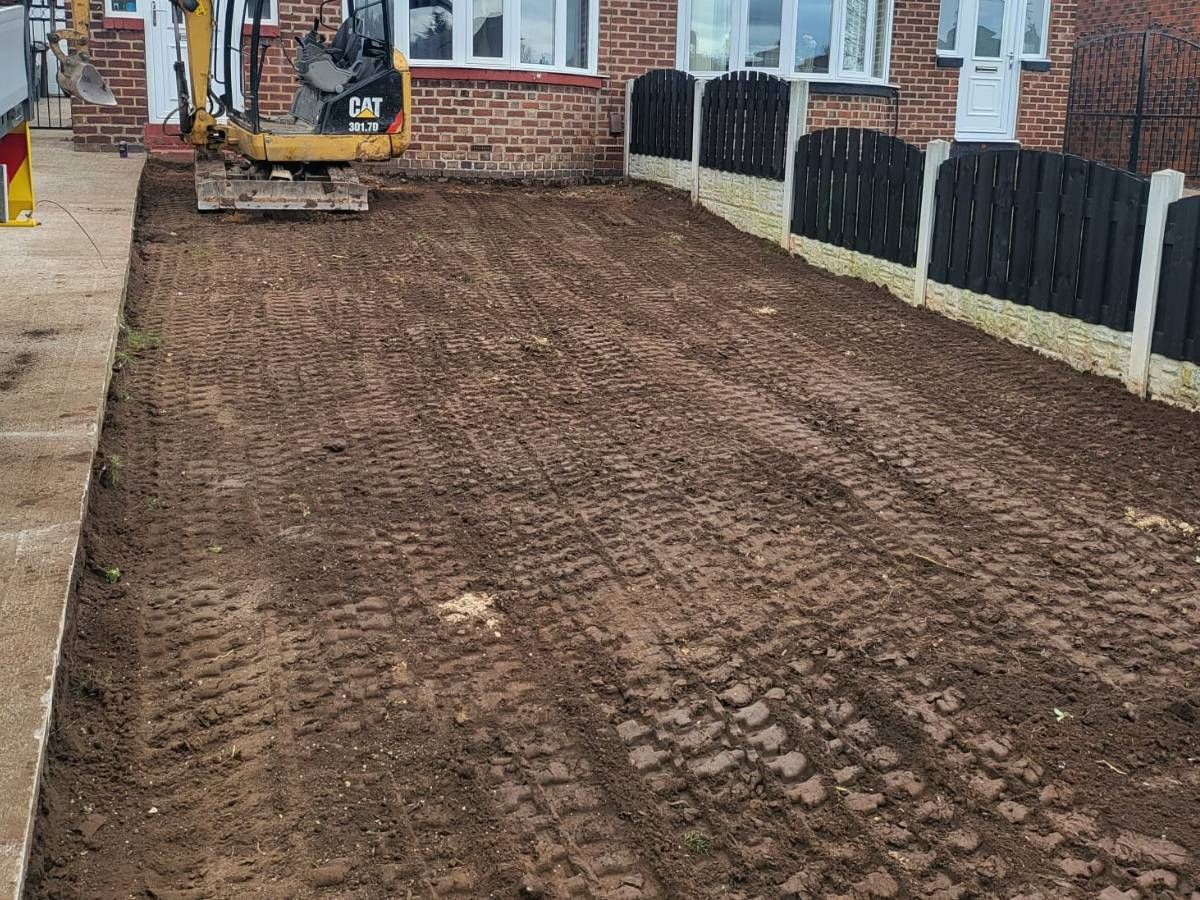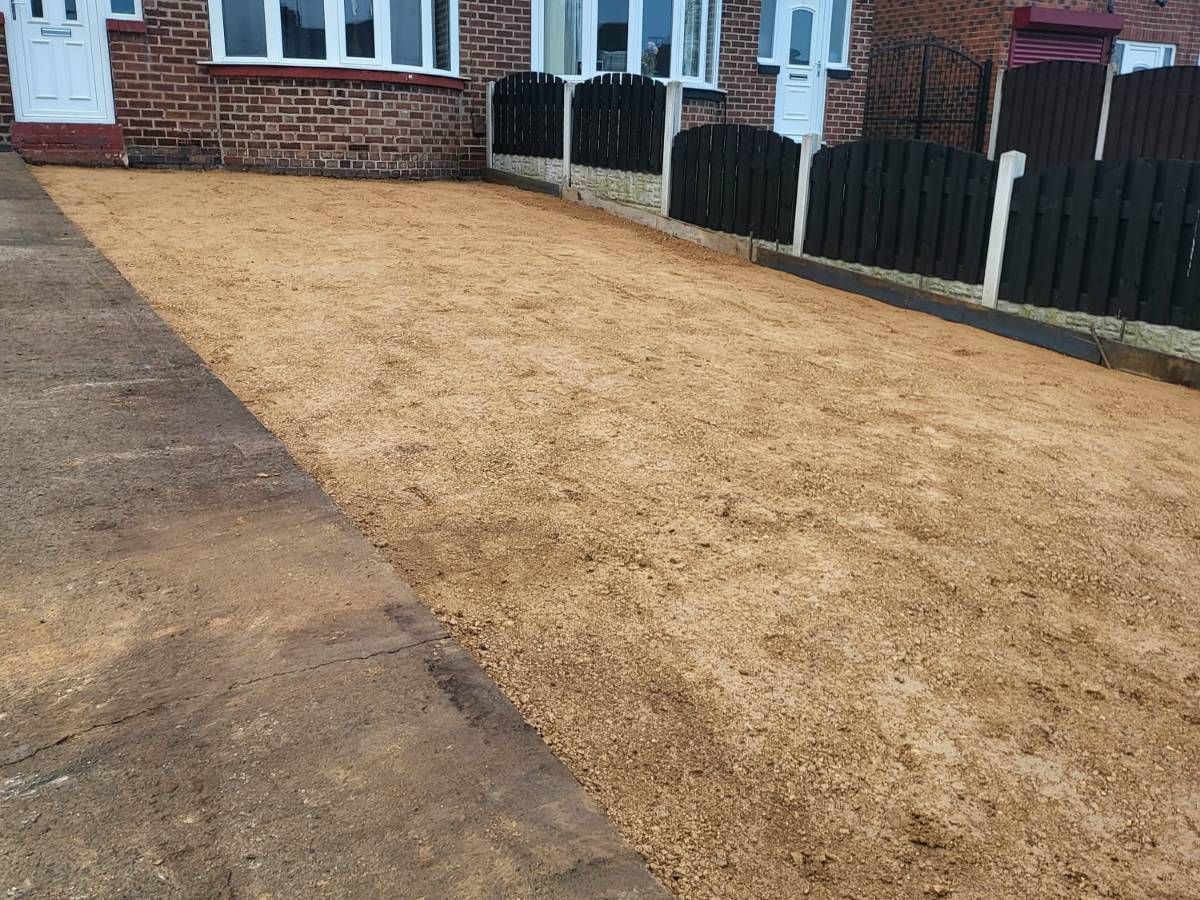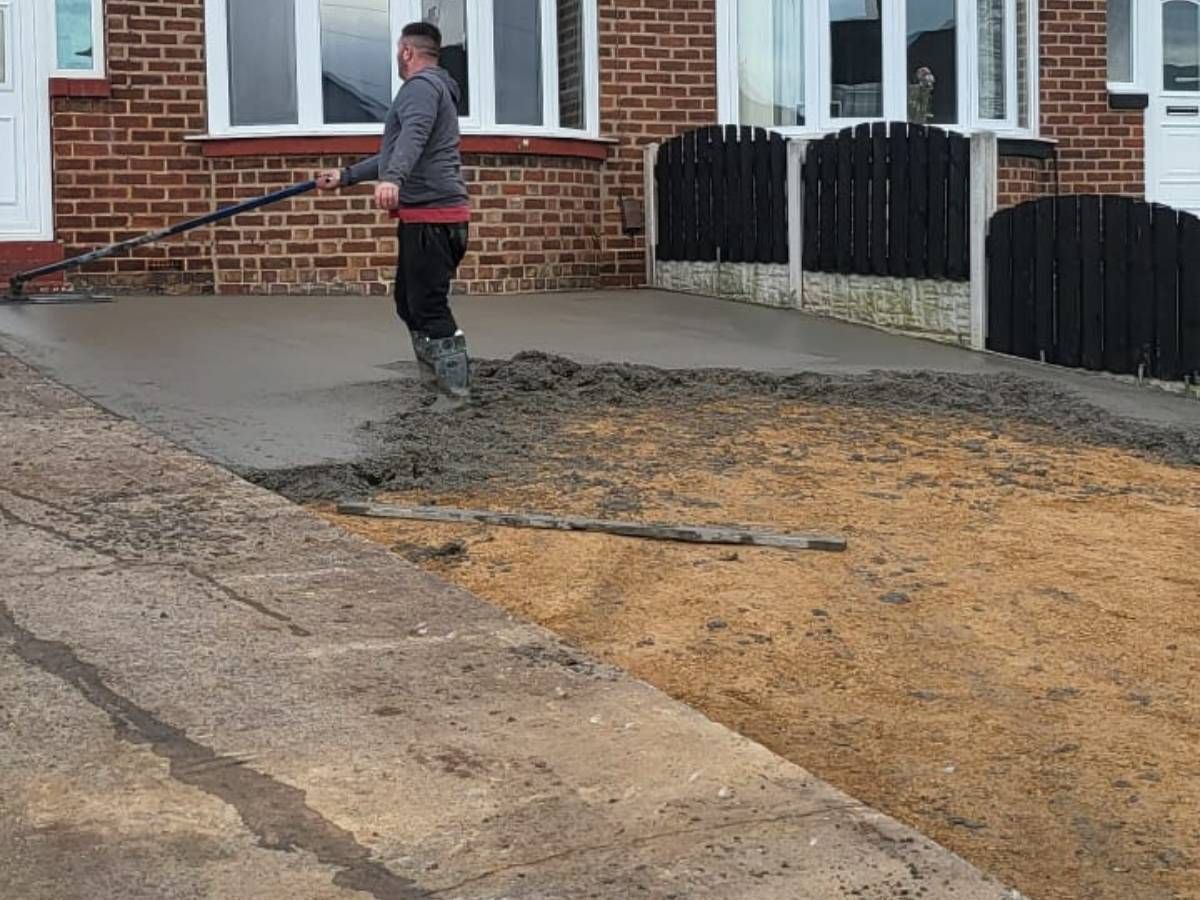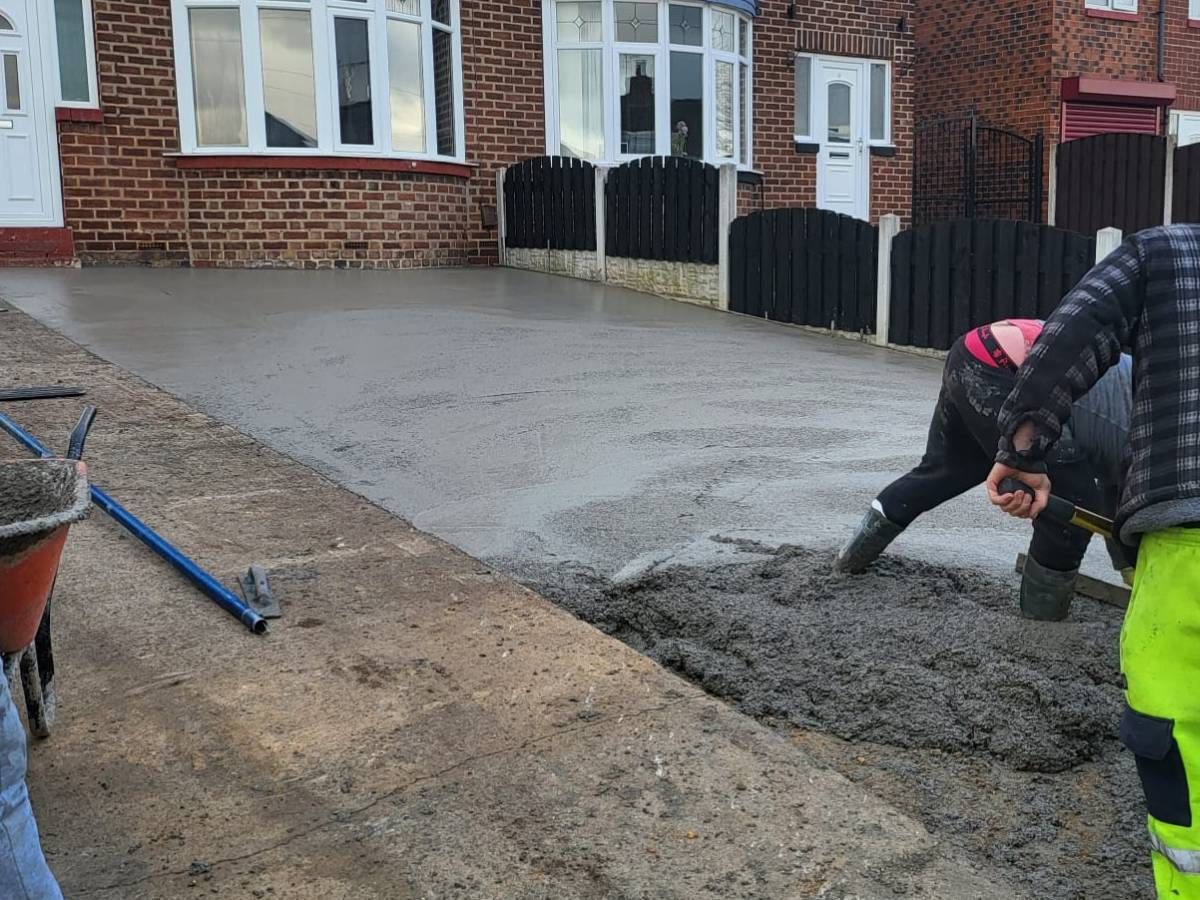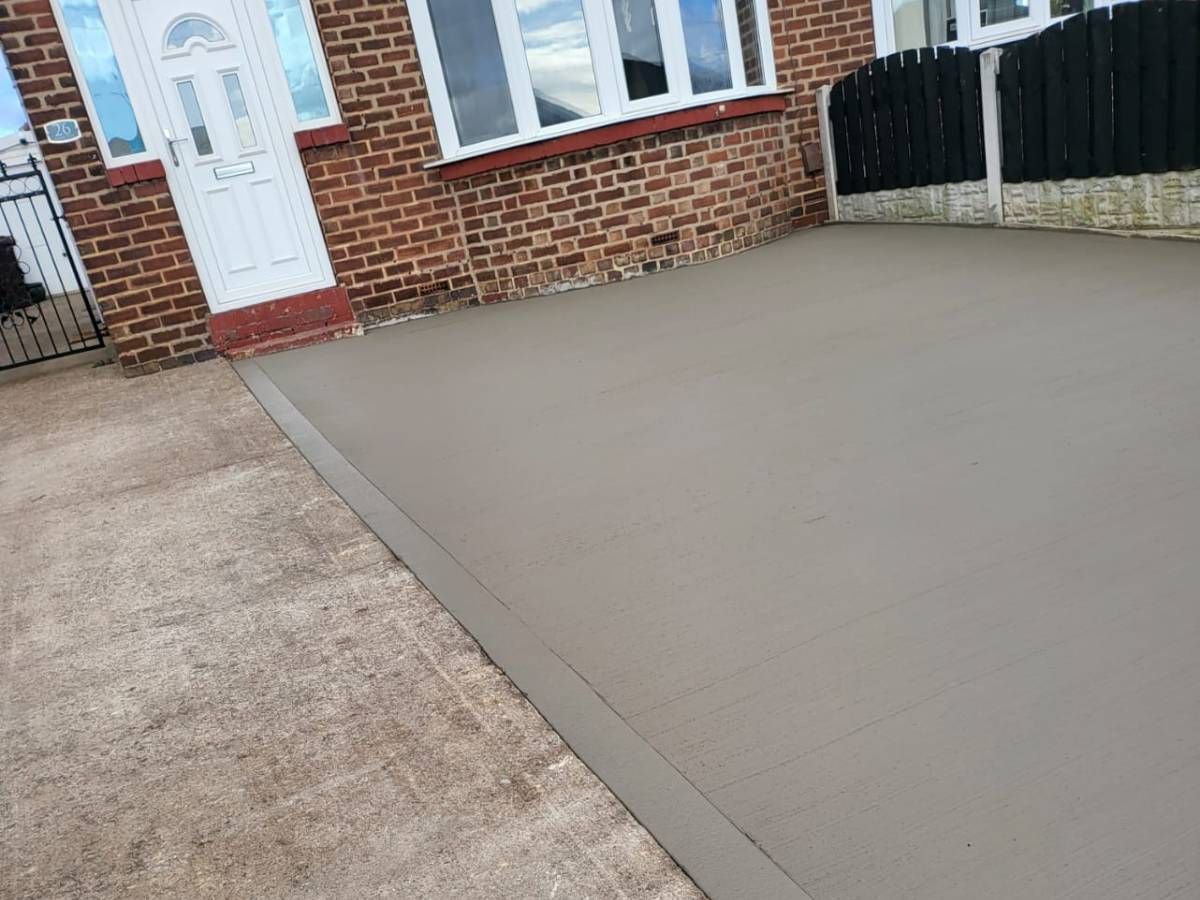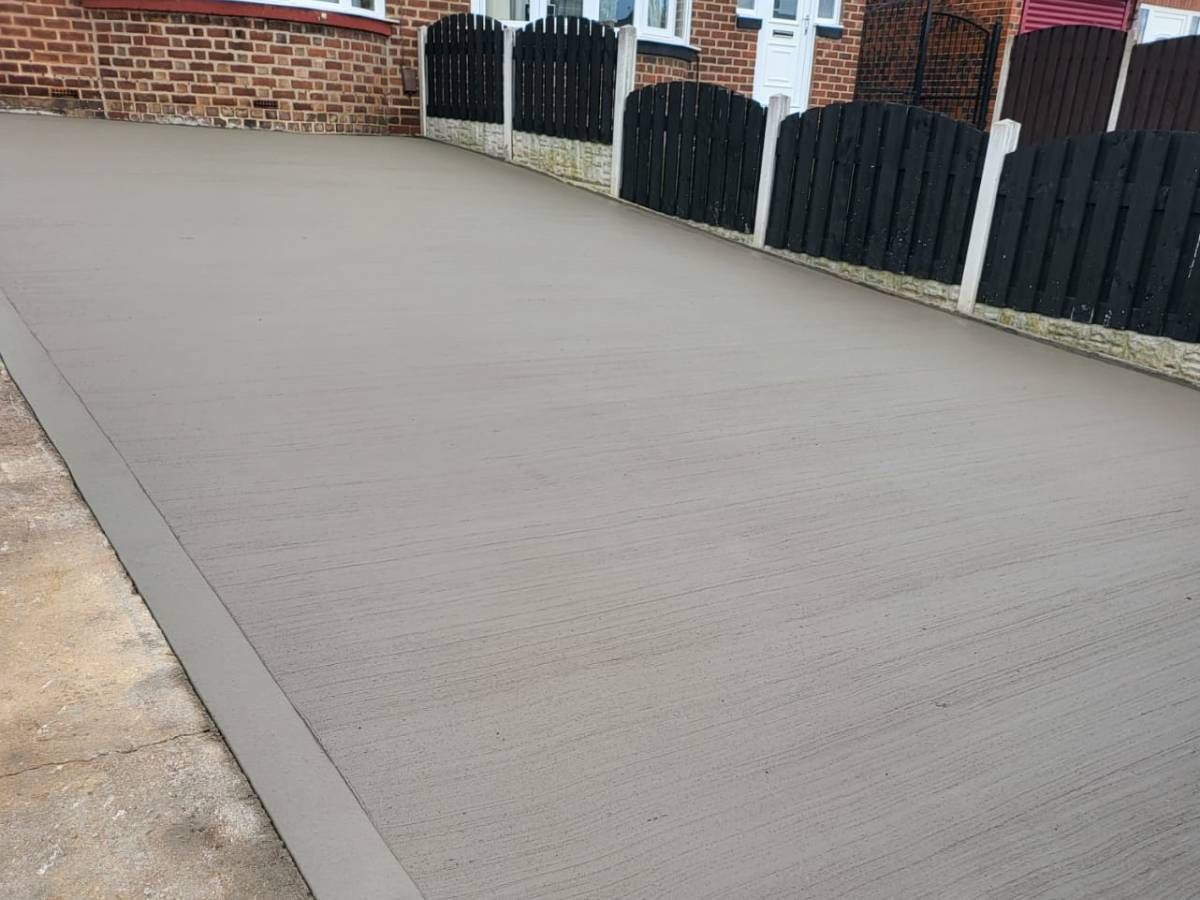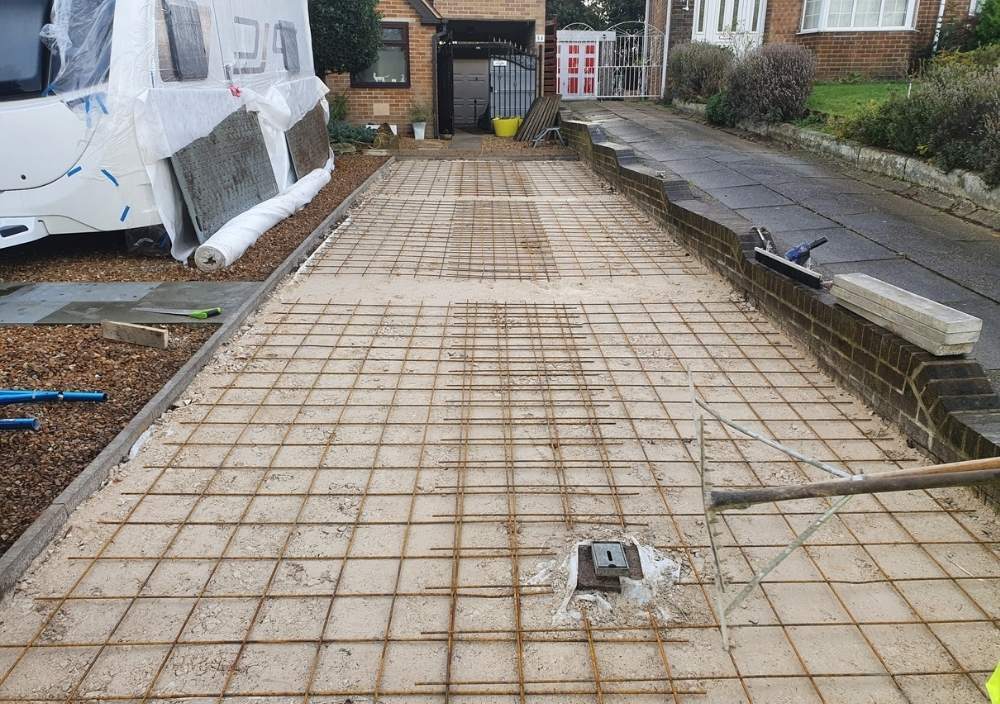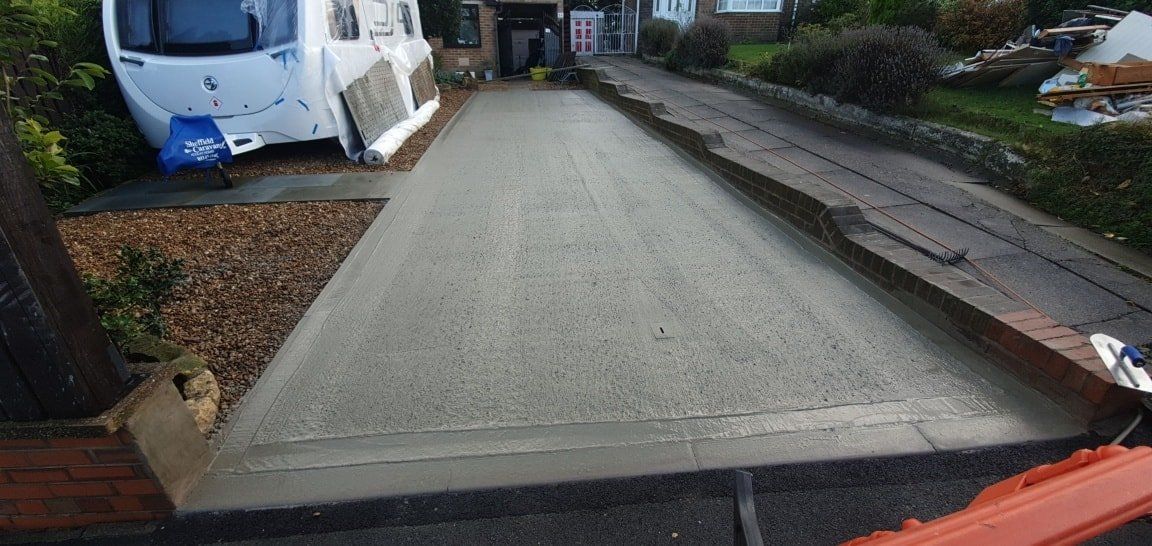Concrete Driveways Sheffield
INCLUDE YOUR MEASUREMENTS & EVEN A PHOTO FOR A QUICK PROVISIONAL CONCRETE DRIVEWAY QUOTE
SEND ANYTIME 24/7
Driveways Sheffield quote request form
We will get back to you as soon as possible.
Please try again later.
Concrete Driveway
A concrete driveway provides a very strong, durable, low-maintenance option ideal for driveways which are likely to see a lot of heavy duty activities.
Our team of groundwork experts can help you plan the
ideal concrete driveway, understand what expansion joints may be required, where water can run off to and how best to edge and boarder your concrete driveway. Before installing the concrete finish a suitable sub base needs to be formed with gravel and an edge, typically wooden planks, laid to contain the concrete. Since concrete on its own has low tensile strength, a grid of metal rebar is typically laid in a criss-cross manner in the area before a high quality concrete is poured over the area. Depending on the nature of your driveway, expansion joints between concrete section may need to be included. The inclusion of good quality mastic in these joints should retard the growth of weeds. If you are looking to widen the entrance to your driveway you may want to increase the width of your
dropped kerb, if so we can also carry that our for your too along with
building a new front garden wall.
Local Concrete Driveway contractors
Contact Driveways Sheffield - your local concrete driveway contractors
Why choose a concrete driveway?
The main reason for choosing concrete or concrete slabs will be down to its strength and durability along with the low maintenance requirements. If you are likely to be using your driveway as a basis for parking a works van or truck, park a heavy caravan or trailer or carry out maintenance work then a concrete driveway is likely to be a good choice. Please be aware thought that during the concrete curing process it would be best not to park vehicles on it for the first week and ideally keep really heavy vehicles off the driveway for a few more weeks. Then a month or two after curing we'd come back to seal the concrete. Whilst not all companies seal concrete this is good practise to do this and to repeat this every 4-5 years to maintain the protection from water ingress which will help the longevity of your concrete drive.
Cost of a Concrete Driveway
As a driveway option, concrete is more expensive than asphalt, but as mentioned it's longevity does make it cost effective long term and it is less expensive than paving or stone options. However, the aspect which may not be so appealing is the aesthetics where standard grey can be viewed as quite dull, unless you decide to upgrade to a patterned concrete alternative. Again each individual driveway will have its unique set of consideration but a ball park figure for concrete of around £70 m2 provides and initial start point.
Concrete Driveway Maintenance
As mentioned a poured concrete driveway is one of the most hardwearing driveway choices you can make. As with any driveway its lifespan will be dependent on usage ad how well it it, it isn't, looked after. If damage does occur repair work should be carried out as soon as possible to prevent the damage from increasing as typically once a surface layer is broken the cracked area is prone to capture debris, seeds and weeds in the summer and if water gets into a crack and freezes the expansion of the ide is likely to make and damage far worse. If you keep on top of any issues you should expect your concrete driveway to last well past 30 years.
Need help?
Frequently Asked Concrete Driveway Questions
-
What are the benefits of having a concrete driveway?
Having a concrete driveway offers several benefits. First and foremost, concrete driveways are extremely durable and long-lasting. They can withstand heavy loads and are resistant to cracking, making them a cost-effective option over time.
-
How long does a concrete driveway typically last?
A concrete driveway typically lasts for around 30 to 40 years with proper care and maintenance. The longevity of a concrete driveway is attributed to its durability and ability to withstand heavy loads and harsh weather conditions. However, the lifespan of a concrete driveway can be affected by various factors such as climate, usage, and maintenance practices. Regular cleaning, and addressing any cracks or damages can help extend the lifespan of a concrete driveway. Overall, a well-constructed and maintained concrete driveway can provide years of functional use and aesthetics.
-
What maintenance is required for a concrete driveway?
Maintenance for a concrete driveway typically includes regular cleaning and sealing. Cleaning can be done by simply using a broom or a pressure washer to remove dirt and debris. Sealing the driveway is essential to protect it from damage caused by weather conditions and regular wear and tear. This should be done every few years to maintain the integrity and appearance of the concrete. Additionally, any cracks or damage should be repaired promptly to prevent them from worsening and causing further issues. Overall, maintaining a concrete driveway requires regular cleaning, sealing, and minor repairs to ensure its longevity and functionality.
-
Can you customise the appearance of a concrete driveway?
Yes, it is possible to customize the appearance of a concrete driveway. Concrete can be coloured, stamped, or stained to achieve different desired looks. Colouring can be done using pigments that are mixed with the concrete before it is poured, allowing for a wide range of colour options. Stamping concrete involves creating patterns or textures on the surface of the concrete, giving it the appearance of other materials such as brick, stone, or tile. Staining involves applying a chemical stain to the concrete, which reacts with the minerals in the concrete to create a unique, translucent colour. By utilizing these techniques, homeowners can personalize the appearance of their concrete driveway to complement the overall aesthetic of their property.
-
Are concrete driveways more expensive than other driveway materials?
Concrete driveways can be more expensive than other driveway materials if you decide to go for a patterned concrete finish but if not it os one of the more cost-effective options.
The cost of a concrete driveway can vary based on the size of the driveway, the complexity of the design, and the region where it is being installed. Additionally, the cost of concrete itself can fluctuate, which can impact the overall cost. However, when compared to other materials like asphalt or gravel, concrete driveways tend to have a longer lifespan and require less maintenance, making them a more cost-effective option in the long run.

